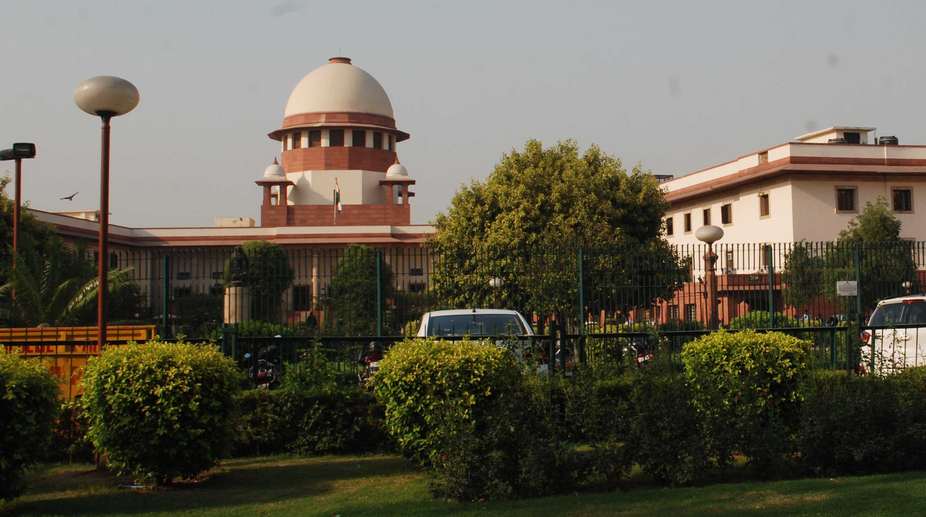India’s Got Latent: SC issues notice on YouTuber Ashish Chanchlani’s plea against FIRs
SC issues notice on YouTuber Ashish Chanchlani’s plea to quash or transfer FIR in India’s Got Latent case; tagged with Ranveer Allahabadia’s petition.

(PHOTO: SNS)
The Supreme Court Wednesday ruled that LK Advani and other top leaders of the Bharatiya Janata Party, including Union Minister Uma Bharti, will be tried for criminal conspiracy in the demolition of the 16th-century Babri Masjid in Ayodhya on 6 December 1992. The mosque razing incited nationwide riots, leaving around 2,000 people dead. The apex court also ordered daily hearings to ensure a verdict is delivered within two years.
BJP leaders Advani, MM Joshi and Uma Bharti will face trial in the 1992 Babri Masjid demolition case as the apex court has allowed the CBI plea and restored criminal conspiracy charges against them.
Advertisement
The court also clubbed the trial in the matter pending against the leaders and 'karsevaks' and said the proceedings should be completed in two years. "We have allowed the CBI appeal against the Allahabad High Court judgement with certain directions," said a bench of Justices P C Ghose and R F Nariman.
Advertisement
The apex court, however, said as Rajasthan Governor Kalyan Singh enjoys Constitutional immunity he can be tried only after he ceases to hold office. Kalyan Singh was UP Chief minister at the time of the demolition.
Making it clear that there would be no de novo (fresh) trial in the matter, the bench also directed that its order should be followed in letter and spirit and granted liberty to the parties to approach it if its directions are not followed.
The court said no party shall be granted adjournment without the sessions judge being satisfied of the reasons for it. It directed the CBI to ensure that prosecution witnesses appear on each and every date for recording of evidence in the case. It directed that the trial court should start the proceedings within four weeks from today.
The court also gave significant directions that separate trials being conducted in trial courts at Rae Bareli and Lucknow will be clubbed together and conducted in the capital of Uttar Pradesh only.
It also said that the trial judge of Lucknow "shall not be transferred" till conclusion and delivery of judgement in the sensational case.
There were two sets of cases relating to the demolition of the disputed structure. The first involved unnamed 'karsevaks', the trial of which is taking place in a Lucknow court, while the second set of cases relate to the leaders in a Rae Bareli court.
Advani, 89, along with party colleagues like Joshi, is charged with making inflammatory speeches that allegedly motivated lakhs of right-wing volunteers or karsevaks to pull down the mosque in 1992. That trial was being held in Rae Bareli.
Now, the BJP leaders will be tried for more serious charges in Lucknow, where, so far, a separate case is dealing with about 20 people accused of the actual demolition of the mosque. By combining the two trials, the judges want to ensure that a verdict is delivered within two years.
The CBI says that it has evidence that the BJP leaders, who made their speeches on a stage near the mosque on the day it was razed, were part of the plan to bring down the mosque.
The agency says that Advani and other BJP leaders met the night before the mosque was brought down and decided that it would be razed, which makes the demolition a premeditated, deliberate event.
The demolition of the mosque came after a movement led in part by Advani for a temple to be built on the same spot where the masjid was constructed by the Mughals. Many Hindus believe that the mosque was built over the birthplace of Lord Ram and want a temple to be built there.
At its last hearing about 10 days ago, the Supreme Court indicated it was likely to club the two cases ~ that means Advani and his party colleagues would be tried in Lucknow as part of one comprehensive case. Judges also expressed their frustration with the (so-far) twin trials moving slowly over 25 years, and said they could order daily hearings with a two-year deadline for a verdict.
Advertisement